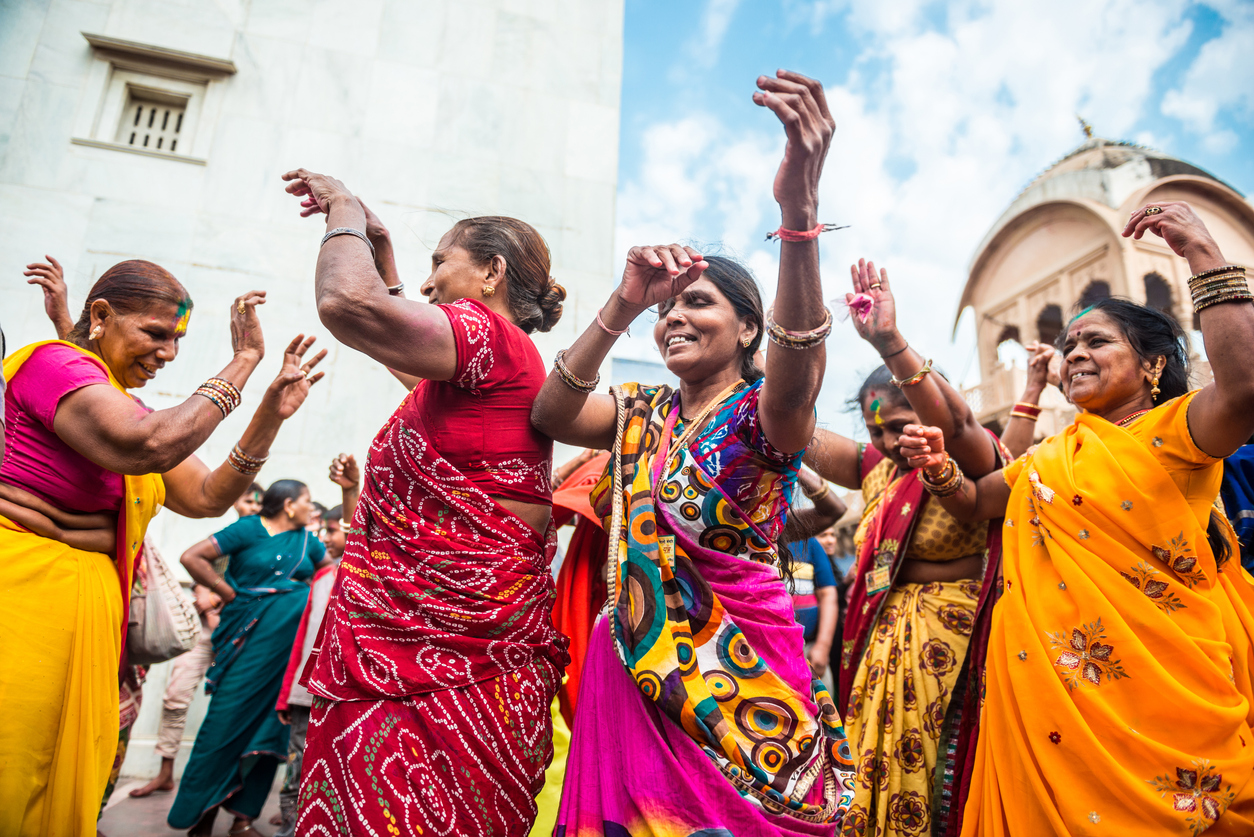Union Cabinet has reportedly approved the Women's Reservation Bill that aims to reserve 33% seats for women in Parliament, Assemblies.

Women celebrating during a festival. The Women's Reservation Bill is likely to be tabled in Parliament. (iStock)
On Monday, 19 September, the Union Cabinet reportedly approved the long-pending Women’s Reservation Bill amidst the five-day special session of Parliament. The Bill reserves 33 percent seats for women in the Lok Sabha and in state Assemblies.
While details of the Bill haven’t been made public, there has been consistent demand for it to also have internal reservation of one-third seats for women from (SC) Scheduled Castes and Scheduled Tribes (ST) groups to ensure fair representation.
Several BJP ministers and MPs have reportedly been asked to bring elected women representatives to Parliament in the coming days. This comes after the BJP president JP Nadda met many of them on Monday.
Cutting across the party lines, several political parties and their leaders have demanded the introduction of the Women’s Reservation Bill, including the BRS in Telangana, with its MLC K Kavitha championing the cause.
The Congress also passed a resolution in support of the Bill at its Hyderabad Congress Working Committee (CWC) meeting on 18 September.
In 1971, the first committee — Status of Women in India — for women was formed. Its primary task was to look into the matter of women’s representation in the elected bodies. This was done in response to a request from the United Nations for a report on the status of women ahead of International Women’s Year, 1975.
The committee was asked to examine the constitutional, administrative, and legal provisions that impact the social status of women, their education, and employment.
Former prime minister Rajiv Gandhi first introduced Constitution Amendment Bill for one-third reservation for women in panchayats and municipal corporations in 1989. While it was passed in the Lok Sabha, the Bill failed in Rajya Sabha.
The 72nd and 73rd Constitutional Amendment Acts, that were passed in 1992 and 1993, when PV Narsimha Rao was the prime minister, mandating 33.3 percent reservation for women and marginalised communities in Panchayati Raj institutions.
More than 14.5 lakh women took leadership positions by becoming a part of local governance after the historic amendment was passed.
The Women’s Reservation Bill was first introduced in the Lok Sabha as the 81st Amendment Bill by then prime minister HD Deve Gowda’s-led United Front government on 12 September, 1996.
But the Bill failed to get passed by the lower house as the Lok Sabha was dissolved.
After two years, the Atal Bihari Vajpayee-led National Democratic Alliance (NDA) government introduced the Bill in the 12th Lok Sabha.
But the Bill did not receive adequate support, and lapsed once more. It was subsequently reintroduced in 1999, 2002, and 2003 by the Vajpayee government but did not muster the support required to become law.
It was in the first Manmohan Singh-led United Progressive Alliance (UPA) government that the legislation was introduced in the Upper House, Rajya Sabha, on 6 May, 2008. The next day it was sent to a Parliamentary Standing Committee.
The standing committee presented its report on 17 December, 2009, and the Women Reservation’s Bill received the Union Cabinet’s approval in February 2010.
Though the Bill eventually passed in the Rajya Sabha by a 186 to 1 margin on 9 March, 2010, it was never taken up for consideration in the Lok Sabha. Bills introduced in the Rajya Sabha do not lapse and this Bill is still active.
The Rashtriya Janata Dal (RJD) of Bihar and the Samajwadi Party of Uttar Pradesh vehemently opposed the Bill, ostensibly on the grounds that it did not provide caste-wise reservation.

Jul 26, 2024

Jul 21, 2024

Jul 18, 2024

Jul 17, 2024

Jul 17, 2024

Jun 30, 2024